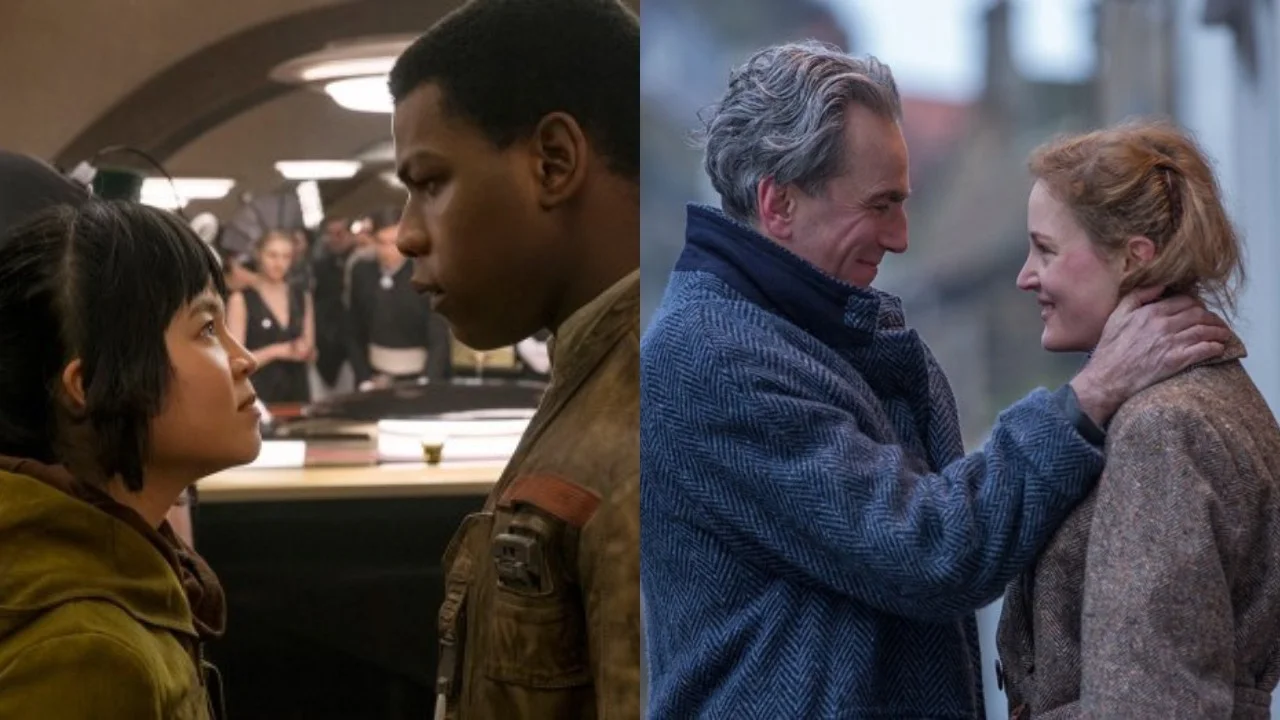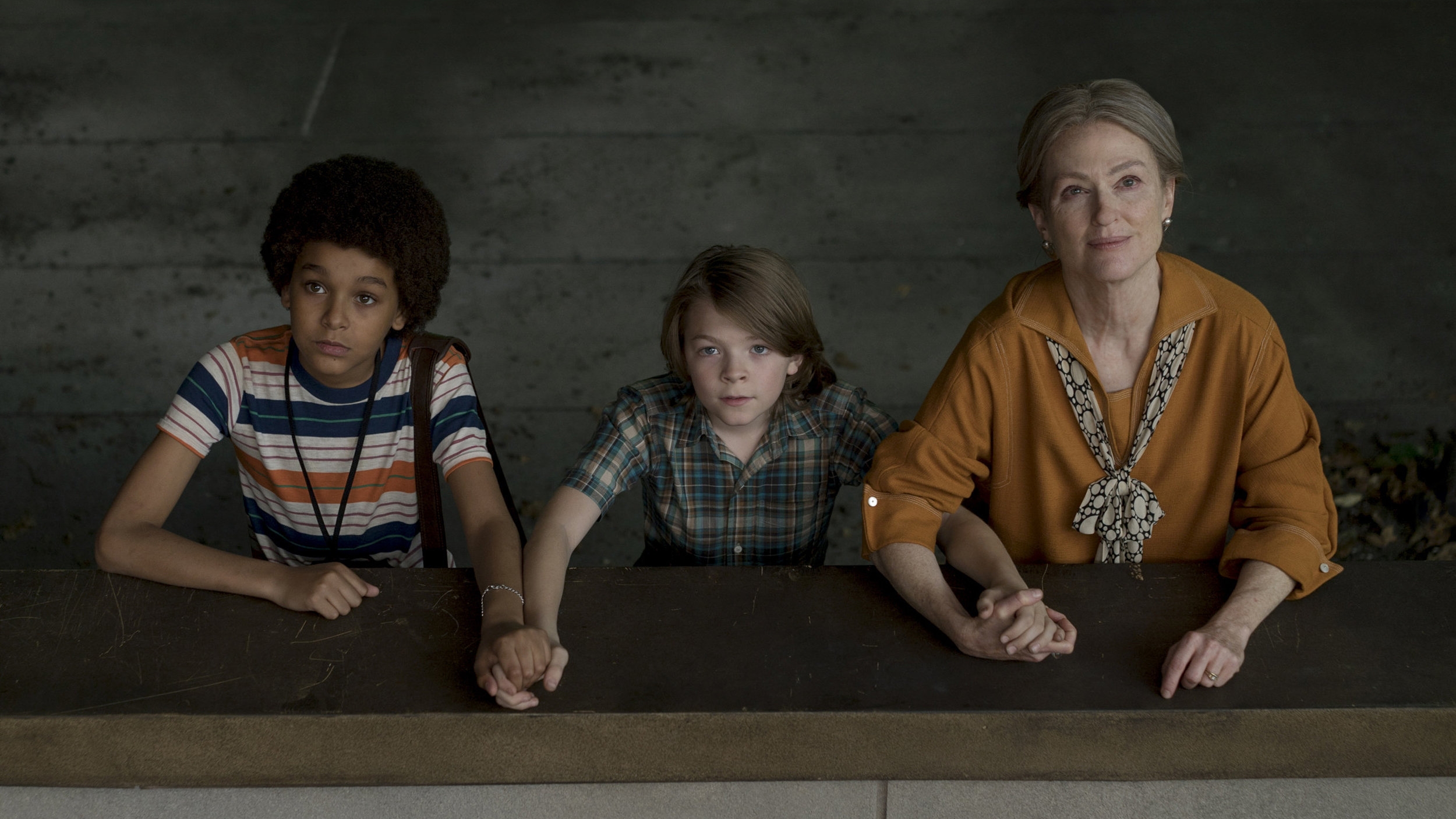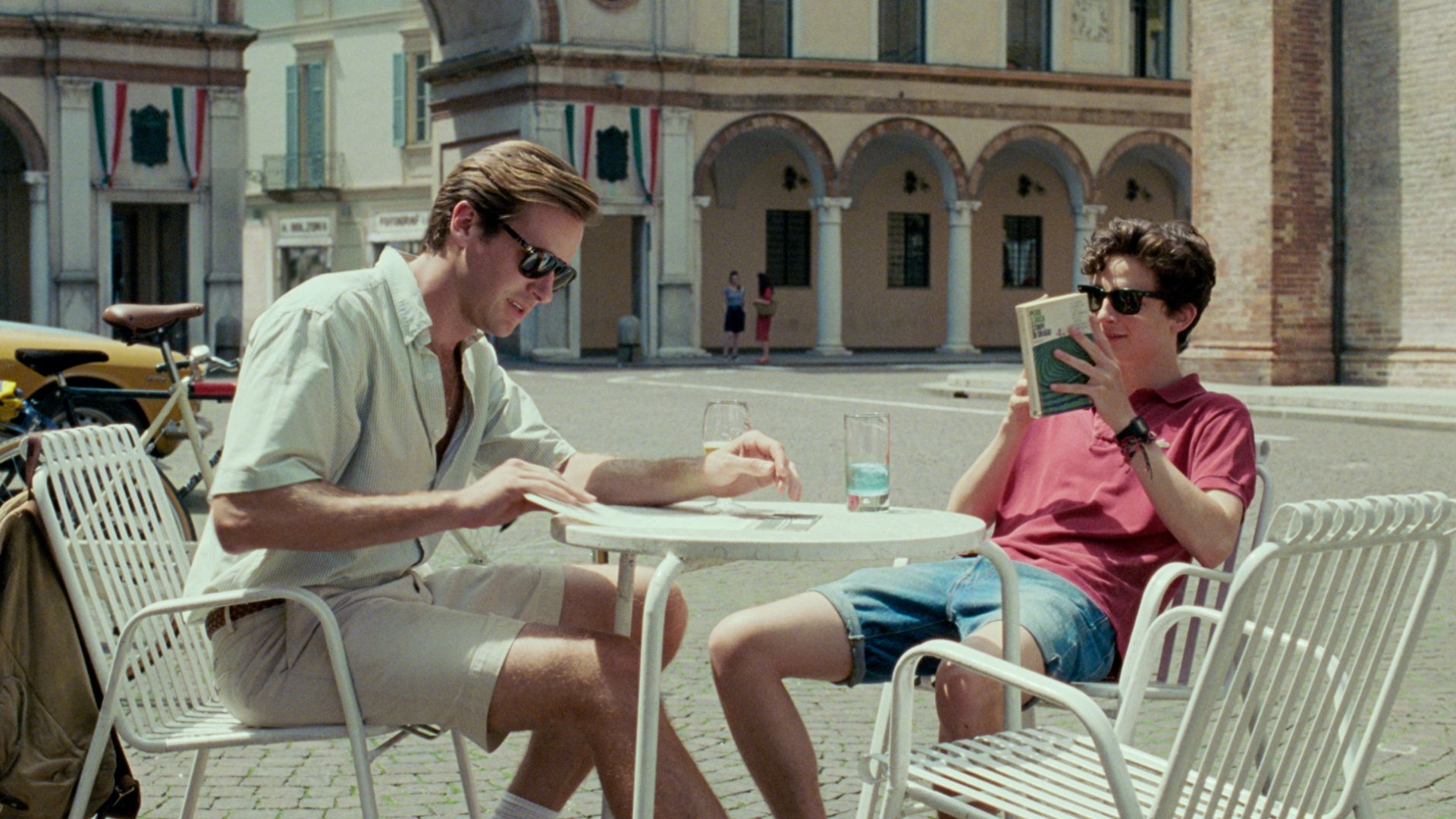Callie's Top Ten Movies of 2017
2017 was a really big year for me. I started two new jobs, one of which was getting the privilege of writing for Talk Film Society. Also, I kicked off the year by moving over 800 miles from a suburban area to a place that’s much more rural, which is a challenging thing for someone who loves movies as much as I do. Still, with a few trips to bigger cities, I managed to fit in almost every movie I wanted. (Shout out to the one who got away, Professor Marston and the Wonder Women.)
But enough reminiscing! Let’s start first with a special honorable mention:
Twin Peaks: The Return (dir. David Lynch)
Since it aired, there’s been a huge debate about what exactly the format of this is: film or TV? Frankly, I don’t care what you call it, and I don’t think it’s a terribly interesting conversation to have. What does matter is that The Return is a masterful work of fascinating fiction and a constant subversion of audience expectation. I had finally gotten into Twin Peaks only a couple weeks before this season started, so the couple of months I got to spend watching Twin Peaks all the way through for the first time were some of my most treasured in 2017. On my complete ranking list, this falls within the top ten, so it deserves its own little section here on this list.
Now, my rapid-fire numbers twenty through eleven, because I don’t want to leave them out completely. Let’s call them honorable mentions, too:
A Quiet Passion, Okja, The Florida Project, Lady Bird, Coco, Colossal, Blade Runner 2049, Your Name., Raw, The Killing of a Sacred Deer
10. Wonderstruck (dir. Todd Haynes)
I saw Todd Haynes’ latest right after The Killing of a Sacred Deer, so it gets a lot of credit for simply being able to renew my faith in humanity. Half silent twenties movie, half vibrant seventies film, Wonderstruck is an affirming look at two children with similar disabilities seeking out family in New York City. Seeing as I already reviewed it, I won’t drag on too long, but it’s a beautiful reminder that family cinema can be just as decadent and artistic as movies made strictly for adults.
9. The Lost City of Z (dir. James Gray)
James Gray’s exploration film is the kind of movie you rarely see anymore. It’s a snapshot of the cinema of an older time, freshened up with a modern twist. Instead of the old movies about explorers where natives and their cultures are treated as villainous, this story centers on an explorer with a great amount of respect and admiration for the beauty in these people. But Percy Fawcett still has that undying, obsessive drive to keep going, to find unknown worlds and glorious forbidden cities. The Lost City of Z is a captivating character study about obsession within a wonderful period piece that feels both old and new all at once.
8. Thelma (dir. Joachim Trier)
There’s a lot of talk these days about the importance of representation in media, from race to the LGBT+ community to mental illness. While it’s one thing to stand for this from a distance, it really is another thing to see a character like yourself on screen, even if it is within a bizarre sort of superhero origin story. Thelma is a girl from a very religious background who leaves to go to university in the city, where she begins to fall in love with another girl as vague powers begin to develop within her. Thelma resists the idea of rejecting faith for sexuality and or sexuality for faith and uses her abilities to stop those who try to pull her to one side or another. Her journey of self-discovery and inner turmoil is one that really struck a chord and made Thelma a singular cinematic experience for me.
7. Star Wars: The Last Jedi (dir. Rian Johnson)
Rian Johnson didn’t have to make The Last Jedi a thematically rich, meticulously crafted film. The public has proven time and time again that we’ll throw money at any movie titled Star Wars, even if it’s followed with “directed by George Lucas”. But Rian did give us something amazing. The Last Jedi is the most daring blockbuster film in years, striking a delicate balance of familiar storytelling with a warning to reject nostalgia and the idea that things can’t grow into something more, that they can’t get past whatever ideas you may have of what should be. Johnson’s film looks audiences in the eye and challenges them in a way we haven’t seen from this franchise for years. The canon is upended and twisted around in a direction few of us saw coming. The old Star Wars is dead. Long live the new Star Wars.
6. Dunkirk (dir. Christopher Nolan)
Seeing Dunkirk in a domed IMAX theater was unlike anything I’ve ever experienced, and honestly, I don’t know if I’ll ever have a similar experience again. Being squished into the old theater seats with someone else’s head between my ankles as I was completely surrounded, engulfed by the battle of Dunkirk, was an intensely stressful day at the movies. This environment forces you to put effort into seeing the entire movie. That means you’re bobbing and weaving your head in your seat along with the slow, tense dogfights or - on the other hand - tensing up as the dark water scenes become nearly stifling. I left the theater an anxious mess but was instantly eager to see it again. Somewhere, Christopher Nolan shed a single dramatic tear, knowing at least one person has seen it in the totally over-the-top way he’d intended.
5. The Work (dir. Jairus McLeary, Gethin Aldous)
A couple weeks ago, I rented The Work on a whim after hearing about it just once. The premise grabbed me immediately: Three men have signed up to participate in four days of therapy with some of the prisoners of Folsom State Prison in California. What followed was ninety minutes of pure catharsis, a barbaric yawp against the creeping menace of modern masculinity, and calming revelations of tenderness from the last men on earth you’d ever expect. As a viewer, you often feel like an intruder in these deeply intimate moments. This kind of raw, genuine emotion is so rarely filmed and shared with the masses, and it’s sobering to remember that this involves men who may never be able to see themselves so vulnerable in this film. The Work is critical viewing and a visceral experience unlike any other.
4. Get Out (dir. Jordan Peele)
I first saw this on opening night in a packed theater, which is undoubtedly the best way to see Jordan Peele’s stunning directorial debut. There’s nothing quite like hearing first-time reactions to this intense thriller, which is gripping from its darkly funny opening through the violent, liberating finale. It’s an impeccably written, wonderfully performed satire that takes modern racism head on in a brilliantly unexpected way. The story is deliberately uncomfortable for white audiences, as it stares them down and demands that they analyze their own behavior with a more critical eye. Get Out is an admirably challenging film, well-deserving of every moment of hype that’s come with it. We can only hope that the Academy sees that brilliance, too.
3. Call Me by Your Name (dir. Luca Guadagnino)
Deeply intimate and refreshingly honest about how sexuality develops over time, Call Me by Your Name is a beautiful, sensual queer romance. A seventeen year old boy falls head over heels for his dad’s graduate student assistant over a summer in their Italian home. Timothée Chalamet’s performance appears almost effortlessly energetic and emotional, and Armie Hammer’s lovestruck intellectual is the kind of guy literally anyone on God’s green earth would fall for in an instant. Each scene aches with the yearning of young love and the intrigue of new discoveries. And, of course, there’s the now infamous peach scene, which really serves as a small snapshot of the film, as an erotic scene morphs into that of heartbreak from the impermanence of romance. The ending to their love story is a shattering, painful one, but as the credits roll and Chalamet brings his performance to a magnificent end, it’s the best kind of emotional pain imaginable.
2. The Shape of Water (dir. Guillermo del Toro)
Sometimes, on that rare occasion, you see a movie that’s so beautiful and moving that it takes your breath away. This year, we’ve gotten that in the form of Guillermo del Toro’s The Shape of Water. If you’ve somehow gotten around the internet without hearing about the plot, it’s the fairy tale of a mute woman, Elisa, falling in love with the fishman being kept in the government facility she cleans. These two characters may not speak, but they are in no way silenced by the narrative. Elisa is the feistiest woman in del Toro’s films so far, as powerful a force of nature as the magical creature she loves so dearly. But through these characters’ physical silence, we get to hear the dialogue mainly through the voices of the side characters: a gay man, a black woman, and a communist: the kind of people who would be the most ostracized in the Cold War era where this is set. Against them is the menacing Strickland, who is the embodiment of everything most deadly in modern American culture. Every evil, poisonous ideology breeds within Strickland’s despicable character and rots him from the inside out. Del Toro’s goal from the start was to write this as a fairy tale for our troubled times, and I think it’s safe to say that he did so perfectly with this exquisite film.
1. Phantom Thread (dir. Paul Thomas Anderson)
Every relationship needs balance. Control must be shared evenly with romantic partners. That’s the crux of Paul Thomas Anderson’s latest feature. Reynolds Woodcock is a dress designer who discovers Alma on a trip to the countryside and makes her his partner and muse. What makes Alma different from all the previous women in Reynolds’ life, however, is the fact that she’s as strong willed and stubborn as him. The relationship’s balance starts weighed in Reynolds’ favor, but as an unhealthy cycle develops and habits become irritants between the two, power changes hands again and again between the two until it all climaxes in Alma’s unexpected way of keeping things equal and Reynolds’ shocking reaction. Vicky Krieps gives a star-making performance as Alma, and Daniel Day-Lewis ends his career on an incredible high note. Equally as important, however, is the elegant costume design by Mark Bridges, the lush, luxurious score by Jonny Greenwood, and the remarkable cinematography by Paul Thomas Anderson himself. Phantom Thread is masterwork by one of our greatest living filmmakers, on a level all its own.













